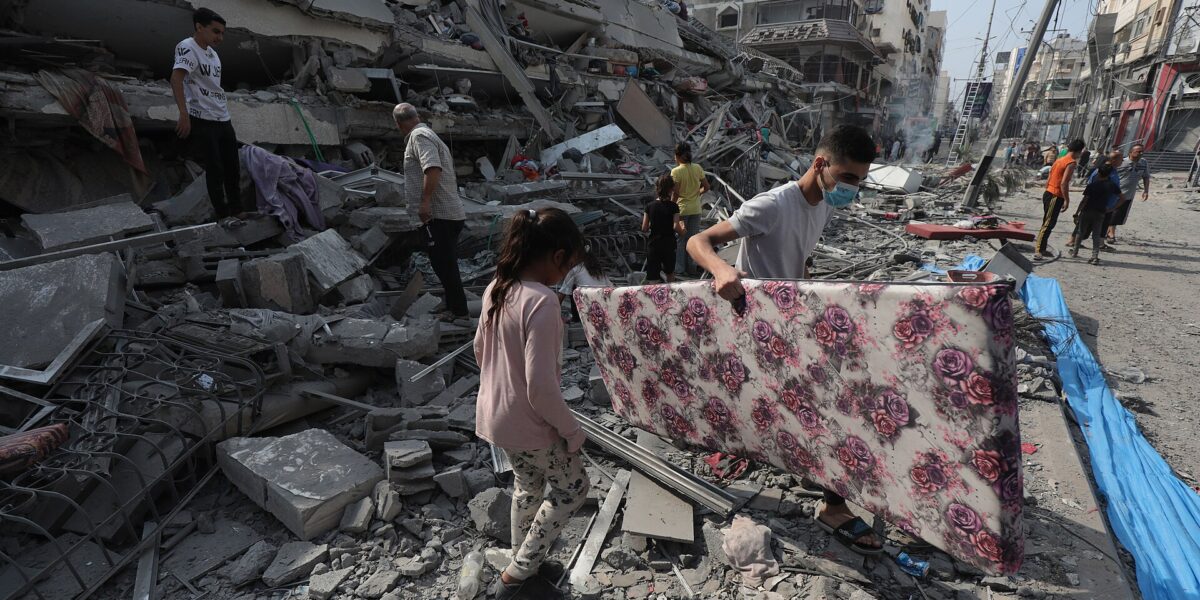“Why should we complain of their hatred for us? Eight years have they sat in the refugee camps of Gaza and seen, with their own eyes, how we have made a homeland of the soil and the villages where they and their forebears once dwelt.”
These words were delivered in 1956 by Israel’s then-top military commander, Moshe Dayan, during an emotional eulogy he gave for a young Israeli soldier killed near the Gaza border.
The legendary Dayan, who wore a patch to cover an eye lost in battle, played a key role in military victories leading to Israel’s creation in 1948 and went on to lead the nation to surprising military triumphs in its early years.
But for all his fierce, unflagging dedication to Israel, Dayan was capable of this fundamental insight into the nature of the forces arrayed against Israel and the source of their rage:
They hate us, he understood, because we took their land.
This essential insight enabled him to understand his Palestinian enemies in a way that seems lacking among Israeli leaders today.
In the 67 years since Dayan described the origins of Palestinian wrath, that wrath has only grown, leading to the horrifying assault this month by Hamas on Israeli civilians, including the murder of blameless youth attending a music festival, helpless children and babies and the seizure of dozens of civilian hostages.
But, as Israel politics have hardened and turned to the right in recent decades, its top figures have tossed aside Dayan’s fundamental insight, discarding all context for understanding what drives the violence directed toward them.
This was evident last week when Naftali Bennett, who served as Israeli prime minister in 2021-22, became furious when a SkyTV interviewer asked him about Palestinian suffering in Gaza.
“Are you seriously — keep asking me about Palestinian civilians? What is wrong with you? Have you not seen what’s happened? We’re fighting Nazis,” shouted Bennett, who remains a member of the Knesset.
But Israel is not fighting Nazis. Nazism was a far graver threat to Jews. And it was based on pure racism, not on a battle over land — which, unlike racism, is possibly negotiable.
Bennett and others might prefer to characterize Israel as fighting Nazis because that makes it easier to justify relentlessly bombing and cutting off water and electricity to Palestinian civilians, effectively treating them as Nazis to be obliterated.
This amounts to collective punishment, a war crime under international law. It is also deeply unfair to the 2.3 million Gazans — half of them children — who clearly had no role in the highly secretive Hamas attack.
Israel appears to be acting under the delusion that by levelling Gaza, it can kill every last Hamas terrorist, bringing Israel permanent security. This is an impossible task, as Thomas Friedman noted in his New York Times column.
It’s impossible because, according to Friedman, there will always be more — indeed, an endless supply — of humiliated, unemployed young Palestinian men who can be mobilized to commit mayhem.
As Moshe Dayan might have added, these young men are also angry, having known nothing in their lives but the prison-like world of Gaza, where virtually everyone is descended from people driven from their homes before and during the 1948 war establishing Israel.
As a devastating humanitarian crisis unfolds in Gaza, there’s an urgent need for countries like Canada to use their clout to demand that Israel, in exercising its legitimate right to self-defence, show restraint — abandoning collective punishment and limiting itself to surgical strikes against Hamas.
If there’s any chance of preventing the situation from spiralling more massively out of control, middle-power countries like Canada will also have to finally start pressuring Israel into giving Palestinians some hope.
If that sounds fanciful, the alternative is worse: allowing this raging, blood-drenched savagery to just continue.
This article was originally published in The Toronto Star.



